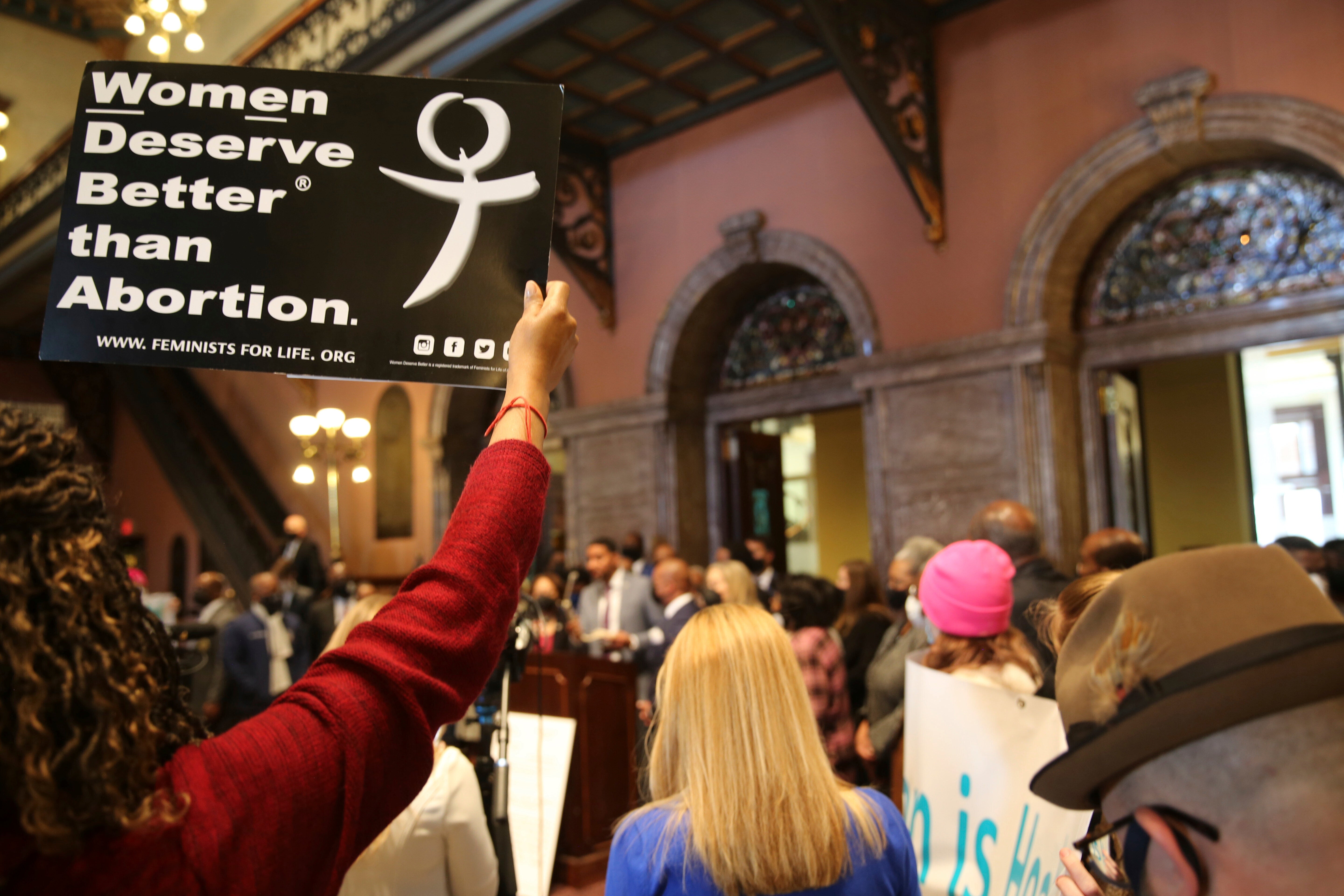Prosecutors seek validation of South Carolina abortion ban
Two of the prosecutors named as defendants in a federal lawsuit challenging South Carolina’s new law banning most abortions have argued that a temporary restraining order halting the law from being enacted should be dissolved because the law itself “is consistent with Supreme Court precedent” on abortion issues

Two of the prosecutors named as defendants in a federal lawsuit challenging South Carolina’s new law banning most abortions have argued that a temporary restraining order halting the law from being enacted should be dissolved because the law itself “is consistent with Supreme Court precedent" on abortion issues.
South Carolina Attorney General Alan Wilson and Walt Wilkins, the prosecutor for two counties in the conservative Upstate, wrote in court papers filed Tuesday that a previous high court decision upholding a ban on partial-birth abortions “suggests that a preliminary injunction should be denied here" and that “Act 1 could be upheld by the Court as valid.”
In the Gonzales v. Carhart decision from 2007, Wilson and Wilkins wrote that U.S. Supreme Court justices rejected the notion that Congress intended for the partial-birth ban to “place a substantial obstacle in the path of a woman seeking an abortion” overall. The Gonzales decision, the prosecutors argued, would seem to indicate that “a ban upon a particular form of abortion – even prior to viability – was deemed constitutionally acceptable.”
The “ South Carolina Fetal Heartbeat and Protection from Abortion Act ” was suspended by a federal judge last month on its second day in effect, following a lawsuit from Planned Parenthood and The Center for Reproductive Rights. The measure requires doctors to perform ultrasounds to check for a heartbeat in the fetus, which can typically be detected about six weeks after conception. If one is detected, the abortion can only be performed if the pregnancy was caused by rape or incest or the mother’s life is in danger.
Ban opponents have argued many women do not know they are pregnant by then, especially if they are not trying to conceive. And, they argue, with such an early deadline, the law gives women little time to consider whether to have an abortion.
Judge Mary Geiger Lewis initially put in place a 14-day temporary restraining order, which Planned Parenthood said was needed in part because more than 75 women are scheduled to have abortions in the state over the next three days, and most of them would be banned under the new law.
Lewis has said she will renew the restraining order until a March 9 hearing. That will be on Planned Parenthood's request for an injunction halting the law until the lawsuit is resolved.
Gov. Henry McMaster signed the bill into law less than an hour after state lawmakers sent it to him. It's similar to abortion restriction laws that a dozen states have previously passed, all of which were stopped from taking effect and currently are tied up in court. Federal law, which takes precedence over state law, currently allows abortion.
The new law does not punish a pregnant woman for getting an illegal abortion, but the person who performs the procedure can be charged with a felony, sentenced up to two years and fined $10,000 if found guilty.
South Carolina has three clinics that provide abortions in its largest metropolitan areas — Charleston, Columbia and Greenville — and none of them perform abortions after the first trimester. Two of them perform abortions only twice a week, according to Planned Parenthood’s lawsuit.
___
Meg Kinnard can be reached at http://twitter.com.MegKinnardAP.